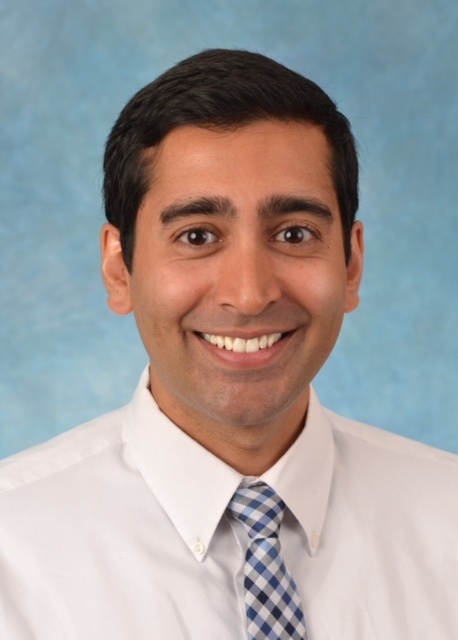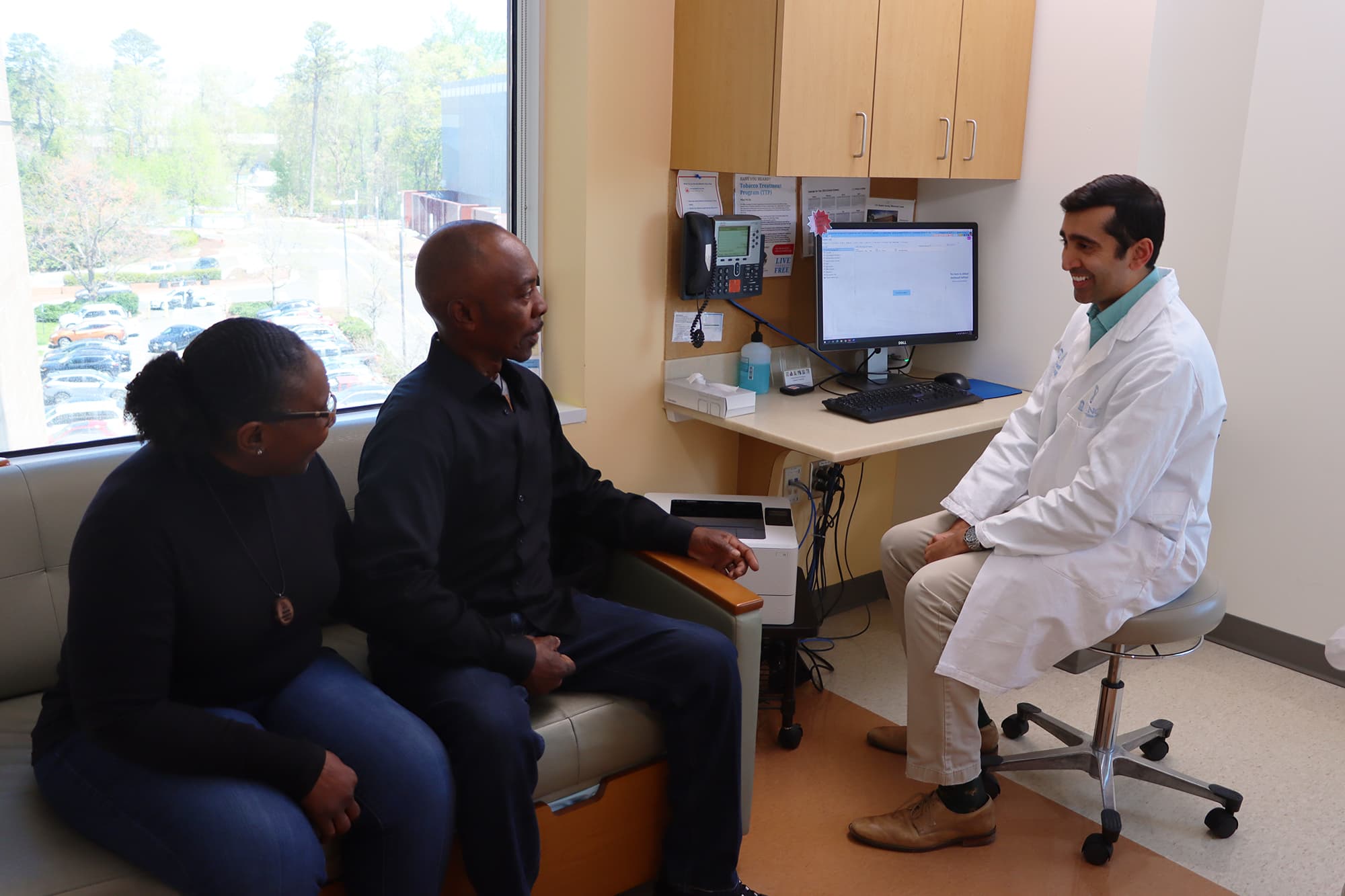
For Siddharth Sheth, DO, MPH, the pull of Carolina was too strong to resist and he knew UNC was the place for him and his family when he pursued his first faculty position in medicine.
However, it wasn’t just UNC that shaped his medical career. When Sheth’s mom was diagnosed with cancer and later relapsed, he knew oncology was the right path for him.
Here’s a few minutes with Sid Sheth.
Tell us about your journey to this point in your career
I was born in Pittsburgh, PA, but I tell everyone that I am an “Eastern NC boy.” My father was a physician in Jacksonville, N.C., so my family has been based in N.C. for most of my life.
I proudly became a Tar Heel as an undergrad at UNC (Class of 2007!). While I went away for about 10 years to further my education and for the life experience, I returned to UNC for my oncology fellowship in 2016. I flirted with the idea of leaving UNC to start my medical career but the gravitational pull of this place is too strong.
I have been on faculty five years and we feel deeply committed to UNC and the mission of this hospital. My wife, Jacqueline Morris, DO, is a physician at UNC (she is an interventional cardiologist) and we have two young sons, who hopefully will attend UNC when their time comes!
Why did you decide to pursue a career in oncology?
We are all touched by cancer in some capacity. My mother was diagnosed with cancer when I was in high school and she relapsed while I was in college. Now cancer free, her journey left a strong impression on me and was the basis to pursue a career in oncology.
Another strong factor for my career decisions is the longitudinal relationship we are privileged to form with our patients. While I like to believe I am providing cutting edge cancer care through novel clinical trials, I also enjoy becoming a de-facto primary care physician for some of my patients. I believe the only way to treat a patient is holistically, so I have no problem dabbling in high blood pressure or gout management!
My path to head and neck cancer is singularly credited to a wonderful mentor of mine (Julie Bauman, MD, MPH) who enthusiastically welcomed me to her clinic as an intern and never let me get away. She helped me realize that I could make a lasting impact in the care of these patients partly because most medical oncologist overlook head and neck cancer (which is a huge mistake!) and partly because this is a really cool field with an evolving treatment landscape.
Why is serving this patient population important to you?
I have the privilege of treating a diverse population of patients – racially, socioeconomically, age and gender. Head and neck cancer can affect your family members, your friends and even you. While we have made some progress in advancing our therapies, there is a lot of work to be done. I enjoy being a voice for my patients, particularly in a disease that has limited visibility nationally.
 What is your most memorable moment with a patient?
What is your most memorable moment with a patient?
I would be dishonest if I could only pick one. I cherish how often my patients’ life journeys somehow have intertwined with mine, even if only peripherally. I loved meeting a patient recently who had worked with my father for 20 years. I also really enjoy sharing patients with my wife so I can make them squirm just a little when I put them on the spot and ask “who is the better doctor?”
What advice do you have for someone entering this line of work?
I have a few:
- Pick medicine because it is the profession that motivates you and provides a deep satisfaction. Don’t do it for money, fame or any other secondary benefit because there are other jobs that can provide that more easily.
- Trust the process. It’s a long, hard road to going from pre-med to an attending physician. And once you get to the “top,” it doesn’t instantly become easy.
What was your very first job?
Research assistant doing laboratory experiments in HIV.
What helps keep you motivated?
Spending time with my boys. I work really hard for them so they can have a good life and hopefully help others one day too (in a way that is fulfilling to them).
